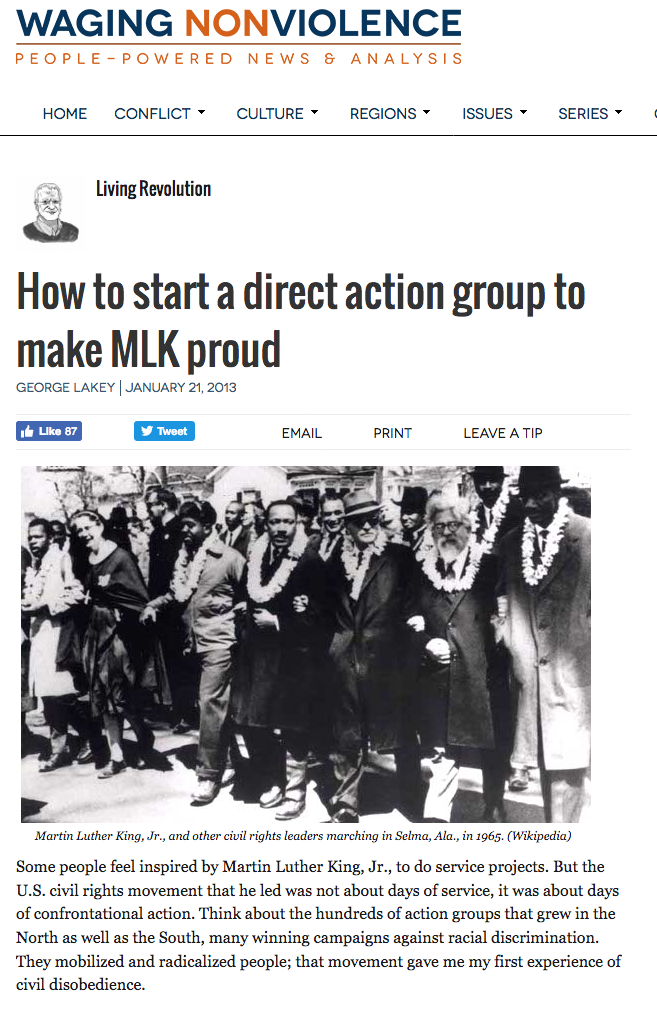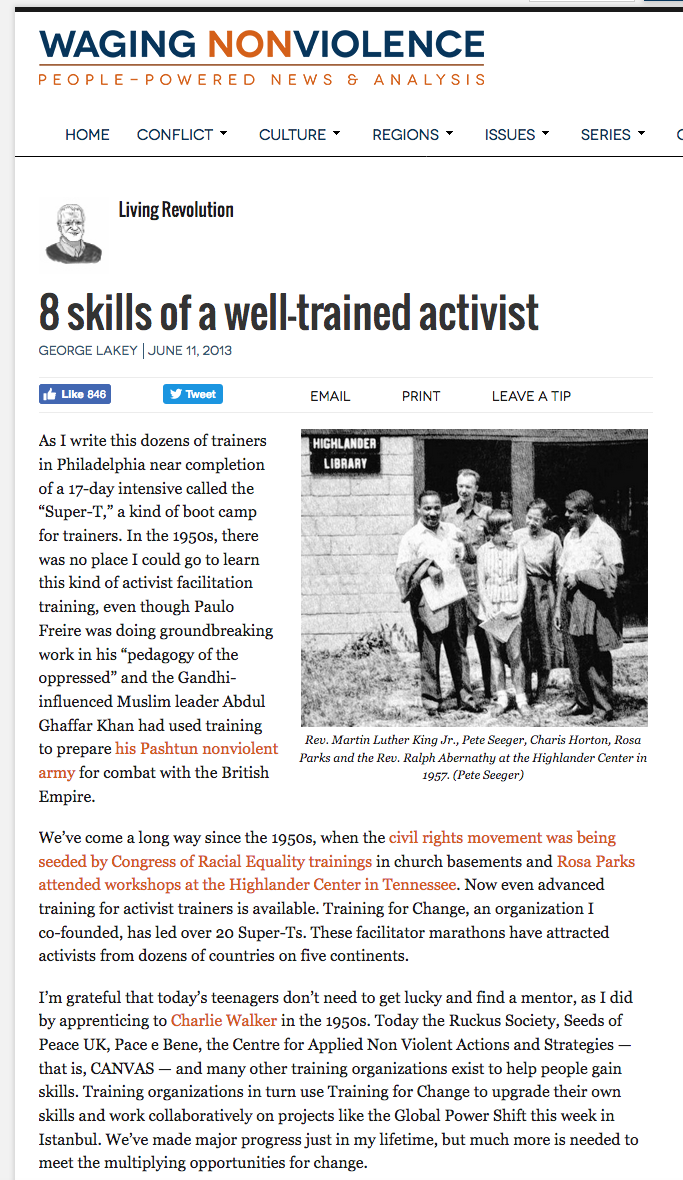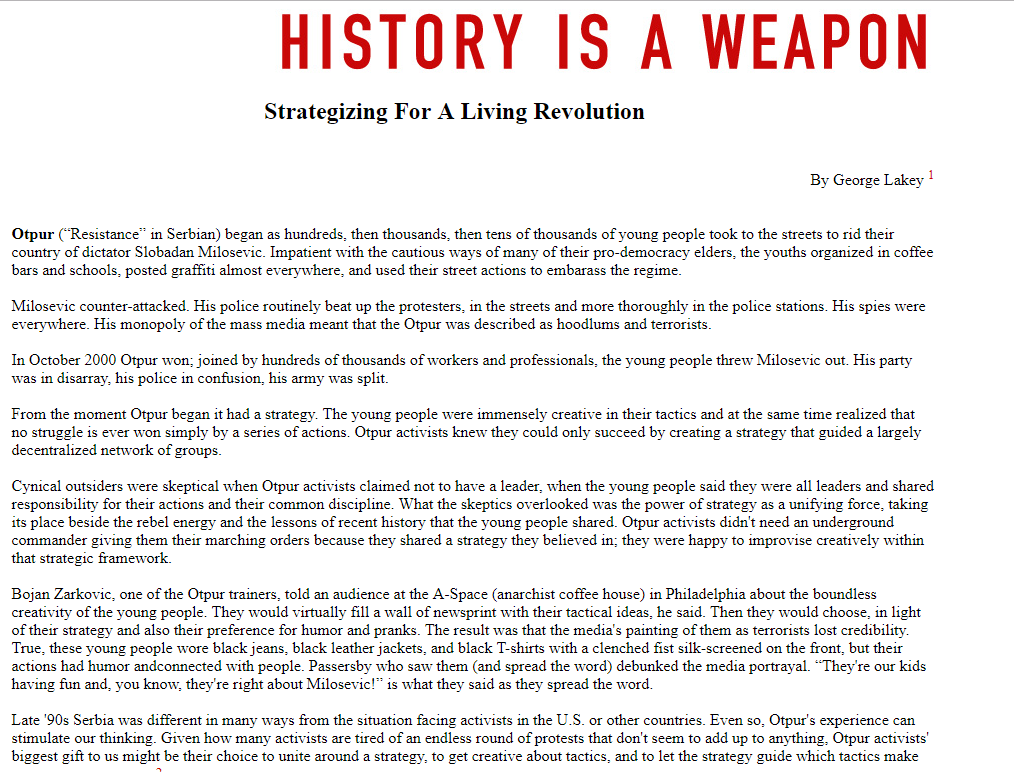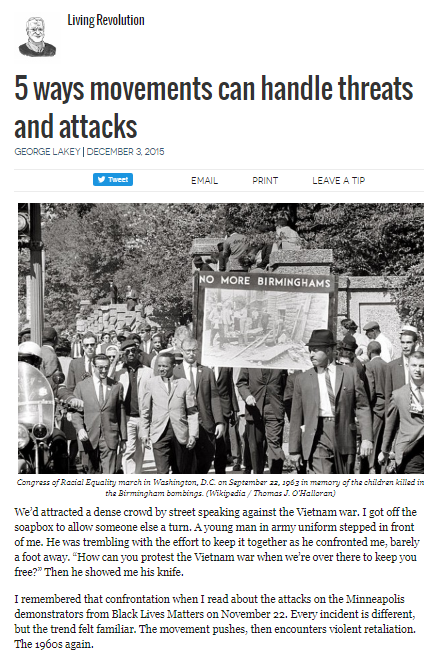
How to start a direct action group to make MLK proud
Some people feel inspired by Martin Luther King, Jr., to do service projects. But the U.S. civil rights movement that he led was not about days of service, it was about days of confrontational action. Think about the hundreds of action groups that grew in the North as well as the South, many winning campaigns against racial discrimination. They mobilized and radicalized people; that movement gave me my first experience of civil disobedience.
Since then we’ve learned a lot about how to start action groups in a way that increases their chance to thrive, wage a campaign, learn from it and grow. To celebrate King’s holiday, I’ll share some of the wisdom that has accumulated, often through trial and error. The steps for beginning a group are not really as simple as a food recipe, but I’ll take the risk of writing this in a recipe-kind-of-way. Remember that every situation is always unique. You’ll need to think with friends through each step, adapting to your circumstances.
wagingnonviolence.org, January 21, 2013



